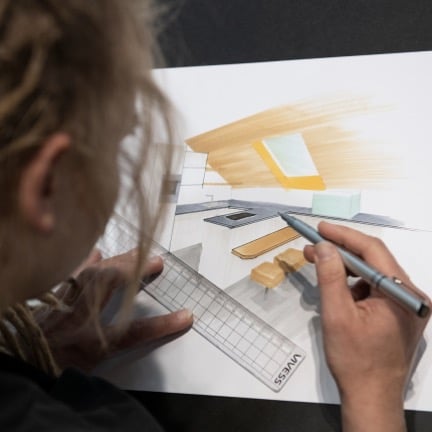GERMANY – Research and development, as well as education and training, are indispensable on the road to a more sustainable and productive future for woodworking and wood processing.

The LIGNA.Campus at the world marketplace for the wood industry will be a visitor magnet for anyone with big plans in the woodworking and wood processing sectors. “With LIGNA.Campus we are creating a place where the next generation of wood industry professionals can find valuable support and encouragement, and benefit from leading-edge expertise,” says Stephanie Wagner, Head of LIGNA at Deutsche Messe AG. “Especially in times when major upheavals are taking place and everything is being put to the test, it is vital to focus on research and development, and above all on training and continuing education. The LIGNA.Campus therefore holds the tools for the challenging path to a more sustainable future for the industry.”
At its booth E62 in Hall 11, the Fachschule Holztechnik Melle will inspire visitors with two fascinating topics for further education: AR technology and smart factories. In a project with the German Research Center for Artificial Intelligence (DFKI) and the “AdEPT” team, an augmented reality-based learning and teaching tool for in-company training and continuing education was created. Now that the developed software has been tested at Melle University of Applied Sciences, visitors to LIGNA 2023 can try out this cutting-edge technology and experience how anyone can use the application in a wide variety of ways in their day-to-day work.
The second advanced training topic – the Smart Factory – is about the buzzword “Industry 4.0” and about designing production so smartly that batch size one and the fulfillment of individual customer wishes become possible. In the development of this learning carrier with the name sfm, the aim was to show that wood technology is not limited to the topics of wood and wood materials, but that the technology should be seen and understood across all professions. Therefore, not only basic knowledge is deepened at the FH Melle, but also areas of activity are expanded.
These expanded areas of activity also include the development of a configurable fleet management system for driverless transport robots, which the Faculty of Wood Technology and Construction at Rosenheim University of Applied Sciences is addressing at its LIGNA.Campus booth F77. The goal is a production-ready fleet management system for SMEs that combines individual configuration, simulation and optimization in a virtualized production facility – keyword “digital twin” – as well as the operational use of driverless transport robots in a smart factory. Visitors to the LIGNA.Campus will be confronted with challenges that are as demanding as they are entertaining, including the flexible design of production processes, vendor-independent interfaces and self-learning order distribution by the transport system.


0 Comments